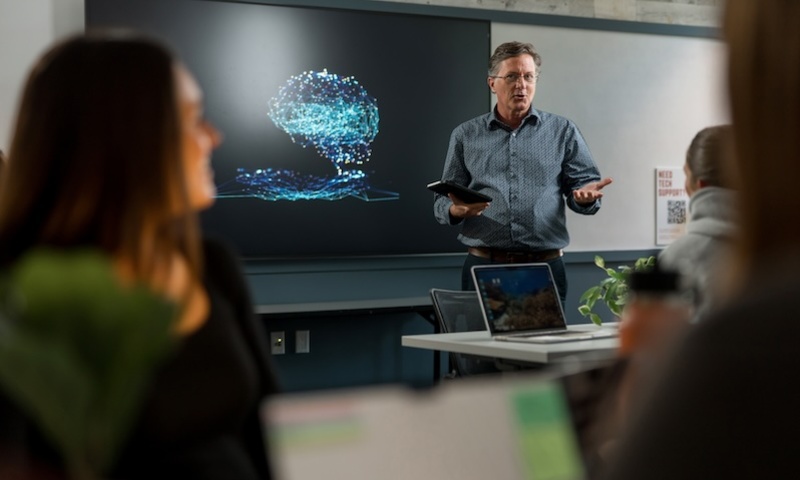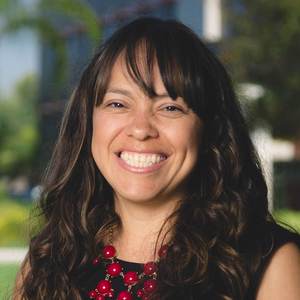Biola University has launched a new type of Artificial Intelligence Lab (AI Lab) for research and interdisciplinary engagement where Christian principles actively guide the advancement and utilization of artificial intelligence.
First of its kind, the lab will serve as a central hub for faculty from all disciplines and students from all majors with an emphasis on collaboration and theological integration to better understand AI and its impact on society and the Christian faith. The lab will offer training and opportunities to learn and collaborate for students, faculty and staff. With the hopes of becoming a valuable resource within the Christian community, the AI Lab at Biola will eventually extend training to local businesses and church leaders.
Dr. David Bourgeois, professor of business analytics in the Crowell School of Business at Biola, will serve as director of the AI Lab, which will be located in the Crowell School of Business building.
“The mission of the Artificial Intelligence Lab at Biola is to educate, engage and experiment with AI in a way that reflects the Christian commitment to moral and ethical discernment, human dignity, and the unique capacities inherent in the image of God,” said Bourgeois. “We aim to be a resource center, actively shaping the future of AI by providing education, fostering dialogue, and leading innovative AI projects rooted in the Christian tradition.”
Unlike other AI labs at colleges across the nation, the AI Lab at Biola will be grounded in theological principles that will guide discussions and practical applications and will be an interdisciplinary hub for academic programs across campus.
Research from Barna Group underscores the lab's significance, revealing that self-identified Christians exhibit a greater inclination towards integrating artificial intelligence (AI) into their professional endeavors compared to non-Christians. With 62% of Christians in the workforce reporting frequent or occasional use of AI, as opposed to 49% among non-Christians, the lab is a vital space where Christian values shape the trajectory of AI development.
The study also reveals cautious tendencies towards AI within the Christian community, indicating that only 27% of Americans trust AI with information about Christian teachings and beliefs. Recognizing this digital literacy gap, the AI Lab at Biola seeks to be a crucial hub for Christians to actively engage with and comprehend AI.
“The lab not only fosters digital literacy but also advocates for the ethical and faith-aligned application of technology, addressing the need for education and dialogue in light of potential skepticism or distrust associated with AI usage in spiritual contexts,” said Dean of the Crowell School of Business, Dr. Michael Arena. “Biola is exceptionally positioned as a leader in faith integration and the work in the lab will lead in that way. It will be about holistic education, aiming to produce future leaders equipped not only with technical proficiency but also grounded in Christian beliefs. This comprehensive approach ensures that students are not only prepared for AI careers but also possess moral and ethical discernment, contributing to a workforce aligned with Christian principles.”
Biola students have already captured the school’s commitment to understanding AI by starting a student AI club. The club meets weekly to discuss AI and faith integration.
“We focus on learning how to use AI, but also understanding the theological significance of how it impacts ourselves and those around us,” shared the club’s founders.
In addition to the AI Lab, which is an internal resource, Biola will also be launching an AI Studio designed for collaboration with local businesses and nonprofits to advance external AI solutions and businesses for kingdom impact, and offering five new classes in the fall.
Communication sciences and disorders
Computer science and robotics
Apologetics
Business
Literature
To learn more about the AI Lab at Biola, visit the website. For more information, email media.relations@biola.edu.
 Biola University
Biola University

.jpg)
.jpg)